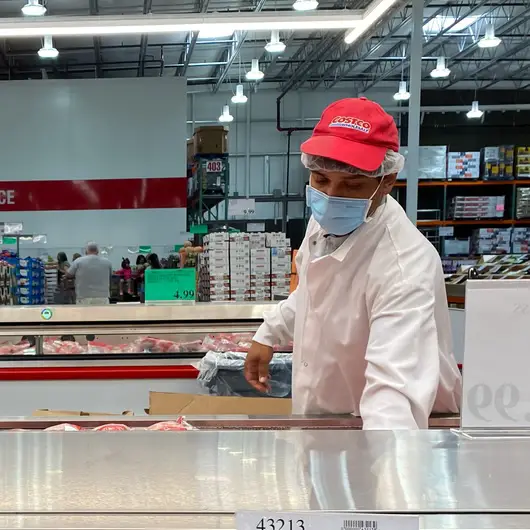Costco has built an empire on bulk savings and $1.50 hot dog combos. But even retail juggernauts stumble now and then. From product blunders to expansion missteps, Costco has made its fair share of head-scratching decisions over the years. What happens when a company known for its savvy business moves takes a wrong turn? Let’s unpack some of Costco’s most questionable choices that had us all wondering: who approved this?
Selling counterfeit Tiffany rings

In a move that can only be described as ill-advised, Costco found itself in hot water for selling engagement rings labeled as “Tiffany” when they were, in fact, not affiliated with the luxury jeweler at all. This decision led to a costly legal battle that ended with Costco being ordered to pay Tiffany & Co. a staggering $19.4 million in damages.
The warehouse club’s attempt to capitalize on the Tiffany name backfired spectacularly. Not only did it damage Costco’s reputation, but it also raised questions about the company’s product sourcing and labeling practices. How could a company known for its rigorous quality control let such a blatant trademark infringement slip through the cracks?
This debacle serves as a cautionary tale for retailers everywhere. When it comes to luxury brands, there’s no cutting corners. Costco’s decision to play fast and loose with the Tiffany name cost them dearly, both financially and in terms of consumer trust.
Cage-free egg controversy
Costco’s commitment to low prices sometimes clashed with ethical concerns, as evidenced by their reluctance to switch to cage-free eggs. Despite growing consumer awareness about animal welfare, Costco dragged its feet on transitioning away from eggs produced by hens kept in cramped battery cages.
This decision sparked outrage among animal rights activists and conscientious consumers. As other retailers made the switch to cage-free eggs, Costco’s delay in following suit seemed out of touch with evolving consumer values. The company eventually announced plans to transition to a cage-free egg supply chain, but the damage to its image had already been done.
The egg controversy highlighted a broader issue: the challenge of balancing cost-effectiveness with ethical sourcing. Costco’s initial reluctance to embrace cage-free eggs showed a lack of foresight in anticipating shifting consumer preferences towards more humane food production methods.
Black Lives Matter apparel ban

In a move that seemed tone-deaf to the social climate, Costco faced backlash for sending employees home for wearing Black Lives Matter apparel. This decision was particularly puzzling given the company’s public statements supporting the movement.
The disconnect between Costco’s stated values and its actions on the ground left many questioning the sincerity of the company’s commitment to social justice. It also highlighted the challenges companies face in navigating politically charged issues in the workplace.
Costco’s handling of the situation demonstrated a lack of clear policy and communication regarding employee expression on social issues. The incident served as a reminder that in today’s socially conscious marketplace, companies need to carefully consider how their internal policies align with their public stances on important social matters.
Kirkland Signature golf ball fiasco
Costco’s foray into the golf ball market with its Kirkland Signature brand seemed like a hole-in-one at first. However, the company soon found itself in the rough when quality issues emerged, leading to customer complaints and a flurry of refunds.
The decision to rush a product to market without thorough quality control checks backfired spectacularly. Golf enthusiasts who had initially celebrated the affordable alternative to premium balls were left disappointed and questioning Costco’s commitment to quality across its Kirkland Signature line.
This mishap highlighted the risks of expanding into specialized markets without proper expertise or testing. Costco’s attempt to disrupt the golf ball industry ended up being a swing and a miss, reminding us that even retail giants can’t always master every product category they enter.
Canadian pharmacy kickback scheme

In a shocking lapse of judgment, Costco’s Canadian pharmacy subsidiary found itself embroiled in a kickback scandal that resulted in a hefty $7 million fine. The company was caught illegally accepting payments from drug manufacturers in exchange for stocking their products.
This decision not only violated ethical standards but also broke the law. It raised serious questions about Costco’s pharmacy practices and the integrity of its drug purchasing decisions. How could a company that prides itself on putting customers first engage in behavior that potentially compromised the quality and affordability of medications?
The kickback scheme tarnished Costco’s reputation in the healthcare sector and highlighted the need for stricter oversight in pharmacy operations. It served as a stark reminder that even companies with strong ethical reputations can fall prey to the temptation of unethical practices in pursuit of profit.
Controversial store locations and expansion
Costco’s aggressive expansion strategy has sometimes put it at odds with local communities. In San Jose, California, plans for a sixth Costco location faced strong opposition from residents concerned about traffic, pollution, and the impact on local businesses. Similarly, attempts to build a gas station in Wheaton, Maryland, were blocked by community resistance.
These controversies highlight the challenges of balancing corporate growth with community needs. Costco’s decision to push forward with expansion plans despite local opposition has sometimes backfired, leading to costly legal battles and damaged community relations.
The company’s approach to expansion raises questions about its site selection process and community engagement strategies. How can Costco better integrate local concerns into its growth plans to avoid future conflicts?
Racist doll controversy
In a baffling lapse of judgment, Costco found itself in hot water for selling a “Lil’ Monkey” doll that featured racist stereotypes. The decision to stock this product revealed a troubling lack of sensitivity and oversight in Costco’s product selection process.
This incident raised serious questions about Costco’s commitment to diversity and inclusion. How could a company of Costco’s size and influence fail to recognize the offensive nature of such a product? The controversy highlighted the need for more rigorous vetting procedures and diverse perspectives in product sourcing decisions.
While Costco quickly removed the product following public outcry, the damage was done. The incident served as a wake-up call for the retail industry, emphasizing the importance of cultural sensitivity and the potential consequences of overlooking offensive merchandise.
Breastfeeding incident mishandling
Costco’s family-friendly image took a hit when the company mishandled an incident involving a breastfeeding mother. The decision to make a breastfeeding patron feel unwelcome in one of its stores sparked outrage and raised questions about Costco’s policies and staff training on this sensitive issue.
This misstep highlighted a disconnect between Costco’s public image as a family-oriented retailer and its on-the-ground practices. The incident underscored the need for clear, company-wide policies on breastfeeding and better training for staff to handle such situations with sensitivity and respect.
Costco’s failure to properly address this issue not only alienated customers but also put the company on the wrong side of a growing movement to normalize and support breastfeeding in public spaces. How can a company that caters to families afford such a lapse in judgment?
In the end, Costco’s journey is a reminder that even retail giants aren’t immune to missteps. From product blunders to ethical lapses, these decisions highlight the complex challenges of managing a global brand in an ever-changing retail landscape. While Costco has weathered these storms and remains a beloved shopping destination, these incidents serve as cautionary tales for the entire retail industry. They underscore the importance of ethical decision-making, community engagement, and staying true to core values in the pursuit of growth and profit. As Costco continues to evolve, one can only hope that these lessons learned will shape a more thoughtful and responsible approach to future business decisions.

